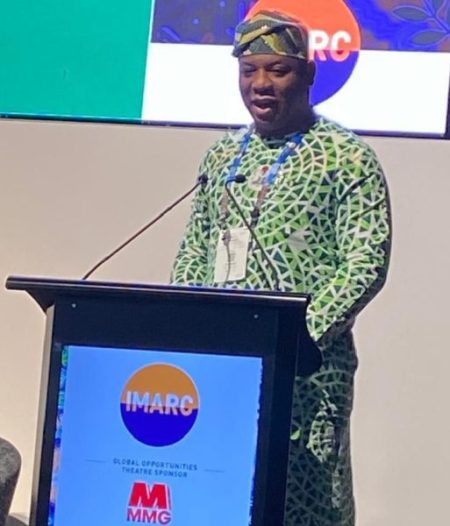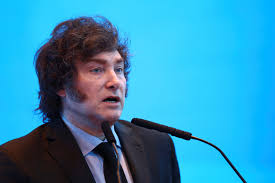29 December 2014, Lagos – Nigeria’s quest to enhance her human capacity in the maritime sector of the economy, especially in the training of young seafarers under the aegis of the National Seafarer Development Programme (NSDP) has gulped N20 billion, the Director General (DG) of Nigerian Maritime Administration and Safety Agency (NIMASA), Mr. Patrick Ziakede Akpobolokemi has said.
NSDP, which was initiated by NIMASA during the tenure of the former Director General of NIMASA, Dr Ade Dosunmu is aimed at training young Nigerians as seafarers in quality maritime training institutions across the globe. Though Nigeria has a high number seafarers but they are fast aging due to inadequate training facilities following the demise of the defunct national shipping carrier, Nigeria National Shipping Line Limited (NNSL) in 1995.

So far, over 2500 Nigerians have been sent to maritime training institutions across the globe including the United Kingdom, India, Philippines, and Egypt since NSDP inception over four years ago. Besides sea time training on board ocean going vessels, the cadets are studying Naval Architecture, Marine Engineering, Ship Survey, and Marine Transportation.
Akpobolokemi disclosed in Lagos that N20 billion was spent between 2012 and 2014.
Giving an insight on how the money was spent, the NIMASA boss explained that the money was used for the payment of school fees, traveling expenses, medicals and feeding for the cadets.
According to him, the agency took the initiative of training the cadets due to the fact that that many state governments across the country are yet to embrace the programme by giving it the seriousness it deserves.
“If we wait for them, we will not be able to achieve our set goals and objectives in bridging the manpower gap in the maritime industry. We are not politicians. We are doing our jobs as professionals. If we leave it for politicians to do the counterpart funding alone, we will be off our marks. That is why NIMASA has taken the bold initiative of ensuring that NSDP succeeds, no matter what it takes, he said.
He stated that the agency would give all it takes to fight crimes in Nigeria’s maritime domain, even as he pointed out that the agency had been able to achieve full domain awareness of its maritime environment, utilising technology and personnel to attain the feat.
He hailed the media for the support it had offered in his first four years just as he enjoined them to do more by investigating thoroughly before going to press.
Akpobolokemi explained that the NIMASA Satellite Surveillance Centre, launched last June, had been very crucial to the successes achieved by the agency in terms of providing intelligence in the fight against piracy and other illicit crimes on the waterways.
‚ÄúIt is now very difficult for anybody to attempt a hijack or piracy incidents around the Nigerian maritime domain successfully as the Agency will get the intelligence before the attack is even launched. I challenge anyone of you here who can mention one hijack of a ship that has occurred in the last one year between the Lagos waters and Republic of Benin. Remember Nigeria controls about 60 per cent of maritime traffic in West Africa, do you think it is by coincidence or that the criminals just repented and this were not planned?‚he said.
Meanwhile, the NIMASA has refuted reports on the alleged acquisitions of warships and gun boats by the firm working for the agency.
Akpobolokemi explained that the vessels in question were simple decommissioned vessels procured by NIMASA through a Public Private Partnership arrangement being used by the Nigerian Navy with whom the agency has a working agreement.
“It is the Navy that has fitted their guns on the vessels to aid their policing of the maritime domain,he said.
According to him, the agency is made up of civilians who are professionals in various fields and who have no political affiliations or interests at all.
As an arm of the government responsible for maritime safety, security and regulations amongst others, we work in conjunction with the Nigerian Navy and other relevant security agencies to use their men and arms to patrol and provide safety of the country’s water ways, as mandated by the global body, the International Maritime Organisation (IMO), he said.
He said the primary interest of NIMASA was to provide a safe maritime domain and that the agency had achieved this through the Satellite Surveillance Centre, upgrade of the Global Maritime Distress Safety System (GMDSS) and continuous inter-Agency relations with the Nigerian Navy, the Nigerian Air Force and the Joint Task Force in the Niger Delta.
He observed that in the process of fighting crime on the water ways, a lot would be said against the agency.
“People will call you a lot of bad names. They will accuse you of using self-help and aiding militancy but ask anyone arrested or his vessel seized what he did? Some of you journalists have escorted us to commission the boats being called warships. They were commissioned and the Nigerian Navy mounted guns on them. The three ships recently commissioned when the President did the ground breaking ceremony for the Maritime University are the ones being called by the foreign media warships brought in from Norway.”
– This Day



